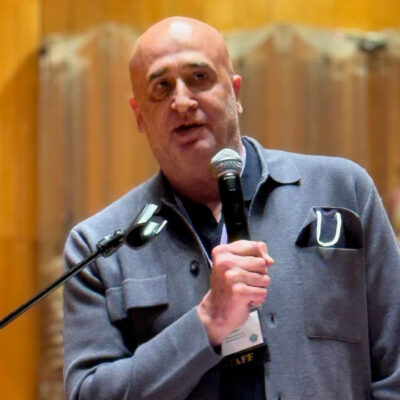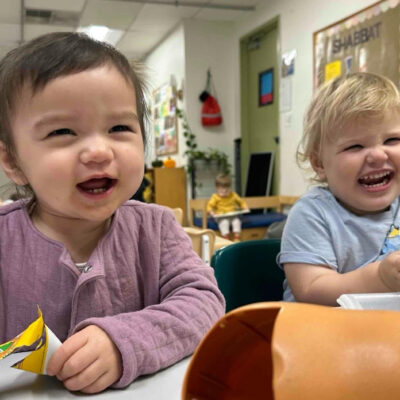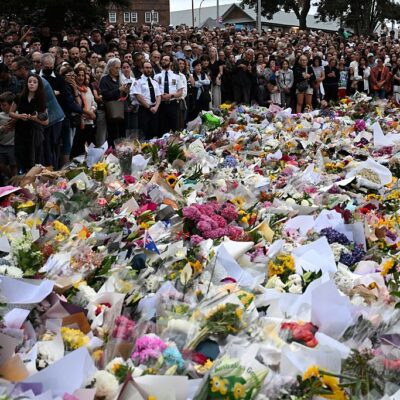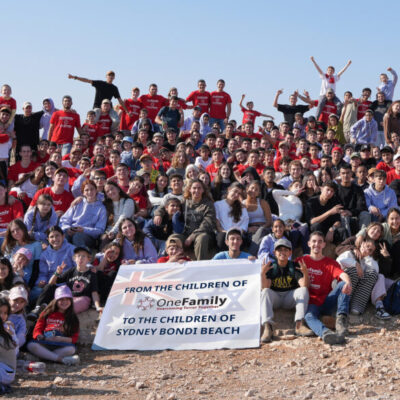Opinion
HEADS UP
We are not just counting people — we are making them count
In Short
Our approach to data collection and analysis at The iCenter mirrors the core purpose of our work: creating and curating relationships.
Marking or counting time is a recurrent theme and directive in the Bible. This concept takes on an additional dimension in Bamidbar, the fourth of the five books of the Torah, referred to in English, though not translated, as Numbers.
In the second verse of the first chapter, Moses is instructed to conduct a census and count the people. Reading these passages as the Torah portion during the period of Sefirat Hoamer, counting the Omer, we would anticipate the word used to describe this process would be lispor, to count; but instead, the terminology used is “se’u et rosh kol adat Bnei Yisrael,” elevate the heads of the congregation of the children of Israel — a curious way to describe counting.
Rashi, the renowned medieval commentator on the Bible and the Talmud, reminds us that we count that which we love. Counting people is not about arriving at numbers but rather about elevating them (literally and metaphorically) by (up)lifting their heads. Through this act, we make eye contact; we encounter their panim, their face, and connect with their essence, their pnim.
The term lispor is also telling — literally and figuratively. Lispor derives from lesaper, meaning “to tell,” as in to tell a story. Our language, being a window into our culture, reflects our deepest values. In the same way that we do not count time but “tell” time, we count people through their stories; we tell and celebrate them.
We believe this evokes a classically Jewish approach to data collection and analysis. The best way to visualize our methodology at The iCenter is through a Venn diagram, two circles with an overlapping section in the middle where the magic truly happens.

The first circle in our Venn diagram represents informational data: the raw facts that help us begin to understand the individuals we serve. This includes details like age, geographic location, educational history and other measurable attributes. These data points are essential because they provide a foundation for understanding who someone is, where they come from and the context in which they live.
As valuable as that information is, however, it only tells part of the story. In the other circle are the relationships we build, the personal connections that reveal truths that cannot be adequately captured in numbers or spreadsheets. This is where we discover the intangible yet deeply meaningful aspects of an individual’s life: their hopes and dreams, aspirations, fears and values. These insights are not merely data points but reflect the humanity of the individual, shaped through trust, dialogue and shared experiences.
The overlap of these two circles — informational data and relational understanding — is where the magic happens. It is in this shared space that we gain a fuller, more holistic understanding of those we serve. Raw data is enriched by human connection, and relationships are grounded in the reality of lived experiences. Together, these elements empower us at The iCenter to respond to people’s needs more effectively, authentically and compassionately.
By balancing the measurable with the immeasurable, we create a framework that respects both the facts of a person’s life and the essence of who they are. This approach ensures that we do not reduce individuals to mere statistics but honor them as complex, whole human beings with stories that deserve to be seen, heard and understood.
This methodology allows us to develop frameworks, pedagogies, resources and educational experiences that truly meet learners where they are. By grounding our work in both data and relationships, we can design learning opportunities that are responsive to the unique needs, strengths and aspirations of our communities. Informational data helps us identify gaps, trends and opportunities, while relational understanding ensures that the educational opportunities we create are learner-centered and culturally relevant. This combined perspective enables us to foster learning experiences that are both accessible and equitable and also deeply meaningful, empowering learners to thrive both personally and professionally.
Data enables us to examine what is in order to inform what ought to be. The mirror becomes a window. We at The iCenter are constantly striving to set the next horizon, not only to determine how best to respond but also how best to relate to the ever-changing realities that make Israel education so compelling and so crucial in forging proud, knowledgeable and passionate Jewish communities. Our data helps us to tell the story of the present and dream the story of the future.
Mikayla Laufer is the director of data strategy and campus partnerships at The iCenter.
Shalom Orzach is a senior educator and consultant at The iCenter. He recently published Telling Times for the anniversary of Oct. 7. It is a weekly exploration of the Torah portion in the context of its modern-day echoes, examining the State of the Jewish people.

 Add EJP on Google
Add EJP on Google










